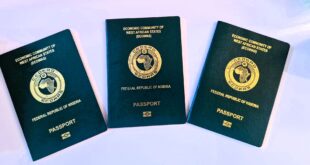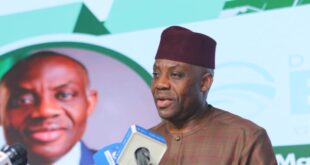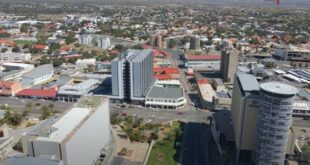Ghanaians will go to the polls on 7 December to elect a president and 275 members of parliament. The Electoral Commission (EC) has released a final voter’s register of 15,703,890 eligible persons to participate in the country’s general election, which will be contested by seven political parties. However, the two most popular parties are the ruling National Democratic Congress or NDC and the main opposition New Patriotic Party or the NPP.
Incumbent President John Dramani Mahama of the NDC, who is seeking a second term, is being challenged by the NPP’s Nana Akufo-Addo who is making his third bid for the presidency having lost in 2008 and 2012.

The president is elected using the two-round system, whilst the 275 members of parliament will be elected in single-member constituencies using first-past-the-post voting.
With about a week to the 2016 general elections, some Ghanaians have expressed uncertainty over the credibility of the polls following the numerous concerns raised by some political parties including the NPP.
In a joint statement, three presidential candidates – Papa Kwesi Nduom of the Progressive People’s Party, Nana Konadu Agyeman Rawlings (National Democratic Party and wife of former President JJ Rawlings) and Edward Mahama (People’s National Convention) – said they had not been given even opportunities to campaign ahead of the elections.
The statement said the EC used the electoral laws as an oppressive tool against them, forcing them to spend six weeks in court to litigate as they were initially disqualified by the electoral body. “This election has witnessed the clearest ever abuse of incumbency on the part of the NDC and the use the State’s security agencies and party thugs to intimidate other opponents.”

Analysts generally predict a very tight presidential contest, which has always been the case in past polls. Some Ghanaian pollsters tip President Mahama but others say the contest is too close to call. The Economic Intelligence Unit (EIU) for the second time in its report on Ghana’s 2016 election predicted that the opposition NPP will win the elections citing cases of a weakened economy among others as critical reasons. “The outcome is by no means a foregone conclusion, however, with the results likely to be close,” the EIU, a UK based think tank which provides forecasting and advisory services through research and analysis, cautioned.
Observers say the EC must ensure that the election process is not only free and fair but must be seen to be so by the people to avoid the polls being marred by chaos and violence. The result of the 2012 presidential polls, won by Mahama, was challenged all the way to the Supreme Court by Akufo-Addo.
Felix Dappah
 THE AFRICAN COURIER. Reporting Africa and its Diaspora! The African Courier is an international magazine published in Germany to report on Africa and the Diaspora African experience. The first issue of the bimonthly magazine appeared on the newsstands on 15 February 1998. The African Courier is a communication forum for European-African political, economic and cultural exchanges, and a voice for Africa in Europe.
THE AFRICAN COURIER. Reporting Africa and its Diaspora! The African Courier is an international magazine published in Germany to report on Africa and the Diaspora African experience. The first issue of the bimonthly magazine appeared on the newsstands on 15 February 1998. The African Courier is a communication forum for European-African political, economic and cultural exchanges, and a voice for Africa in Europe.


































